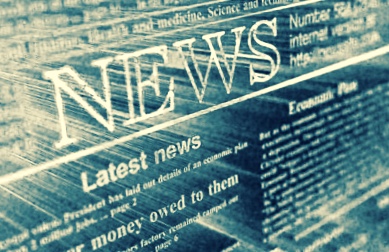Note: This story has been updated with additional information
The following is a news media analysis and commentary
Regardless of who is your chosen – or least favorite – presidential candidate, independent minds should be concerned about the latest revelations in the news media’s unseemly relationships with government and political actors. While there are many responsible journalists working today, inside documents and leaks have exposed serious lapses constituting the most far-reaching scandal our industry has known. It’s our very own Newsgate.
Compromised reporting has always existed as a result of covert collaborations between reporters and political officials—Democrats and Republicans alike. For example, in my new book out next year, The Smear, I’ll report on instances of improper collusion that surfaced during the Bush administration. The most recent available evidence is heavy on Democrat-ties due to the nature of the available documents and leaks.
It can be argued that some individual accounts can be rationalized and are not serious breaches of ethics. But taken as a whole, it’s easy to see how we as journalists have done a poor job protecting ourselves from being co-opted by organized interests, often ones that are paid and politically-motivated. Whether we realize it or not, they’ve figured out how to exploit the media and use us to publish their propaganda. It implies a broad and growing trend that has seriously undermined the credibility of the news industry.
Opinion reporters and those who work for obviously ideological news groups are entitled to publish party propaganda. It’s one matter to provide viewpoint journalism. But it’s quite another for us to act as a tool of any interest, publishing narratives or talking points upon suggestion or demand, without disclosing we’ve done just that.
The Players
The following accounts come from human sources, Freedom of Information Act documents and Wikileaks emails. Obviously, this is just a small sampling of the behind the scenes dealings going on between reporters and their sources. Those mentioned below, to the extent they’ve offered comment, have denied doing anything improper or unethical. Some of the reporters have explained that the reason they provided advance drafts of stories to their news subjects, or allowed the subjects to make editorial choices—moves that are generally considered unethical—was to be responsible, as part of a fact check. Some have commented their actions reflect common practice.
The Associated Press (AP)
The State Department considered AP reporters Matt Lee and Bradley Klapper “friendlies,” and planned to “place” Hillary Clinton email stories with them and dictate the timing of their release. The goal was to blunt the June 2015 news that Clinton had failed to provide Congress certain required emails. Clinton campaign press officer Nick Merrill coordinated directly with the State Department on the plan to use AP to “lay this out before the [Republican] majority on the [Benghazi] committee has a chance to realize what they have and distort it.” Merrill posited, “It would be good to frame this a little and frankly to have it break tomorrow when we’ll likely be close or in the midst of a [Supreme Court] decision taking over the news hyenas.” AP published a story the following day.
The pro-Hillary Clinton super PAC American Bridge claimed it “placed” negative stories about Jeb Bush with AP and other news outlets.
(Also, see Dilanian below under LA Times)
The Atlantic
Marc Ambinder from The Atlantic, asked a Hillary Clinton aide for advance text of a speech. The aide dictated “conditions,” including “1) You in your own voice describe [Hillary’s words] as ‘muscular’,” to which Ambinder agreed. Ambinder formerly worked for ABC, CBS and National Journal.
CNBC
CNBC anchor John Harwood, who moderated a presidential debate between Trump and Clinton, appears to have offered helpful thoughts and analyses to the Clinton campaign.
CNN
The Clinton campaign emailed that CNN politics producer Dan Merica and Clinton were “basically courting each other.”
In an email, Democratic National Committee chair Donna Brazile (then a CNN contributor) said she obtained an advance presidential debate question and passed it on to the Hillary campaign. The question was later asked in a March 13 Democratic presidential town hall including Democrat Bernie Sanders and co-hosted by CNN. Brazile says she didn’t do what she allegedly said she did in the email.
CNN political commentator Maria Cardona emailed Democratic National Committee officials a draft of her opinion piece that attacked Bernie Sanders prior to the upcoming Democratic National Convention in Philadelphia. She invited the DNC’s editorial input and made changes accordingly, asking the DNC, “Is this better?”
The pro-Hillary Clinton super PAC American Bridge claimed it “placed” negative stories about Jeb Bush with CNN and other news outlets.
American Bridge also claimed that a report it produced against the conservative Koch Brothers (billionaire donors) resulted in “a high-profile CNN story.”
(See also Stelter under New York Times)
Daily Kos
A source for the pro-Hillary Clinton smear group Media Matters named Daily Kos as one of several news outlets that are helpful in getting out the Media Matters agenda, according to Daily Caller.
Huffington Post
“The [Huffington Post] guys were good, Sam and Nico,” said a Media Matters source to Daily Caller, speaking of reporters who will report what Media Matters puts out. The comment apparently refers to Nico Pitney and Sam Stein.
Los Angeles Times
Ken Dilanian, who covered the CIA for the LA Times, explicitly promised positive news coverage and sometimes sent the CIA press office entire story drafts for review prior to publication, according to the Intercept, which obtained internal CIA emails and called Dilanian “the CIA’s mop-up man.” Dilanian now works for AP.
Jim Rainey of the LA Times “took a lot of our stuff,” a Media Matters source told Daily Caller.
Source: Sharyl Attkisson, sharylattkisson.com
 Listen Online
Listen Online Watch Online
Watch Online Find a Station in Your Area
Find a Station in Your Area









 Listen Now
Listen Now Watch Online
Watch Online
